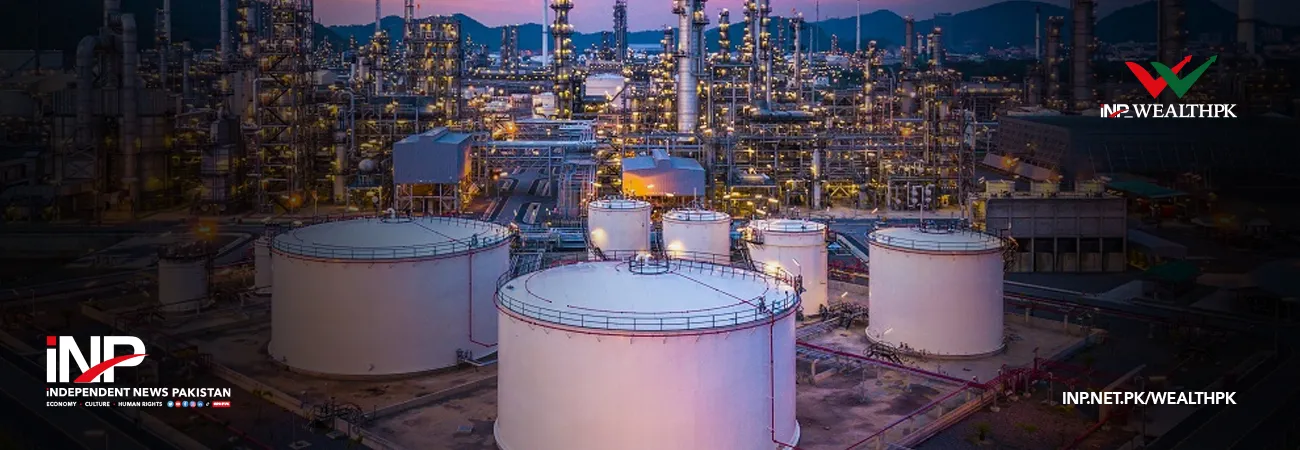INP-WealthPk
Ahmed Malik
Pakistan’s proposed oil refining policy will pave the way for a $4-5 billion investment to upgrade and modernise the local refineries, and increase the reliance of the country on locally-produced petroleum products, which will help save the precious foreign exchange. The policy for the local refinery, namely “Brownfield Refinery Policy”, is on the cards for the approval of the government following the approval of the “Greenfield Refinery Policy” some two and half months back. The policy approval for the local refinery will bring in the much-needed investment the local refining sector has long sought. As the refinery business has become massively capital intensive ($10 billion required to set up new refinery), the upgradation of existing refineries (up to 80% deep conversion) to achieve the target of Euro-V specification fuel by 2026 through redefined tariff protection regime seems the most viable and affordable option, according to the new policy.
The draft Refining Policy 2021 aims at ensuring the sustainability and upgradation of existing refineries. The required tariff protection has already been incorporated a few years back and adjusted in consumer pricing, thereby raising revenue for the government. From time to time, the policy indicates, the government has been providing reasonable support to its local industry against the dumping of imported products at lower prices through adjustment in regulatory/custom duties at the import level. Fertiliser, textile, auto and other sectors are an example, it adds. “In case of refining sector, owing to its heavily capital-intensive structure, the returns on equity have mostly remained in the negative territory,” the draft of the policy says. The impression of granting upfront incentives to refineries before their COD (commercial operation date) was not correct as these are brownfield projects (already operational) and the incremental flows from tariff protection would be blended with new capital raised by refineries on their own balance sheets, the policy draft said.
The major international players in petroleum and petrochemical, through adoption of latest technologies and under the economies of scale, have been posing existential threat to existing refineries in Pakistan. The gross refining margins have been squeezed to historically low levels, thereby putting the long-term viability of the existing refineries at stake in terms of existing tariff protection, which is inadequate to ensure further capital injection. The policy document suggests that incremental revenue from tariff protection, meant for sustainability of the refining sector, will contribute up to 30% of the project cost (reduced from previously proposed 40%) and refineries will add debt/equity (minimum 70%) for the remaining cost of the project at their own balance sheets.
The policy also seeks refinement of special reserve account mechanism to ensure upgradation/modernisation with no withdrawal of funds from special reserve account till award of the EPC (engineering, procurement and construction) contracts. The new policy also suggests the Oil and Gas Regulatory Authority (OGRA) monitor project progress to ensure the proceeds are used only for upgradation and refineries provided bank guarantee worth Rs500 million till the start of commercial operations. There will be no dividend payment and adjustment of losses permissible from special reserve account, reads the policy draft. The policy proposed upgrade of five existing refineries and attracting investment for one new refinery with a capacity of 300,000 barrels/day.
Credit: INP-WealthPk













